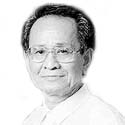Commedia dell’arte

Vantage Point
Luis V. Teodoro

The
commedia dell’arte
(comedy of art) was a dramatic form that developed in 16
th
century Italy that eventually spread throughout Europe. It had stock characters and a predictable plot line.
The closest Philippine equivalent was the
moro-moro
, which, like the
commedia
, is no longer staged anywhere. Occasionally, however, the term is used as a metaphor to describe something meant to deceive the public into thinking that a real drama is taking place, with a cast of characters engaged in a conflict, contest or contention the outcome of which seems nearly impossible to predict.
A
moro-moro
, however, has a predetermined ending. Devised by the friar orders during the Spanish colonial period to convince the Indios that Christianity saves not only the soul but also the flesh, it stereotyped Muslims by depicting them as the violence-prone but inevitable losers in confrontations with conquistadores and Christian converts.
In the same category of manipulation and deceit are the tactics this country’s politicians, their public relations operators, and their so-called “parties” have raised to the level of bad art. They devise all sorts of shadow plays to depict themselves as the champions and saviors of the masses, as the harbingers of change to erase perceptions that what they are in politics for is self-aggrandizement, and, in total opposition to their commitment to keeping things the way they have always been, as exponents of modernization and national development.
It’s an unending process that goes on before, during, and after the every-three-year campaigns for public office this country is cursed with. With the complicity of much of print, broadcast, and online media, those who value only their own lives and private interests paint themselves as fathers of the country. Those who have never in their entire self-serving lives cared about the sufferings of the Filipino poor re-invent themselves as the epitomes of solicitous concern for the powerless and dispossessed.
All that has been going on since the Commonwealth era. But as the May 2022 elections near, the country is witnessing the re-staging of the 2015-2016 playbook of deception that was so successful in enabling a provincial despotism that would have otherwise passed into contempt to gain national power.
It begins with the supposed multiplicity of “oppositionist” individuals and groups whose own statements and actions are fast exposing them as likely regime distractions and misleaders fielded to confuse the electorate and divide the votes of the pro-democracy and reform-minded sectors of the population.
Together with this ploy of chaos and confusion is the game that the Duterte camp has again launched. It is to keep the electorate and those truly opposed to the current tyranny of incompetence and corruption guessing as to who exactly it is going to field for President and Vice-President in 2022.
As if to mock its own processes and to trivialize the elections as no more than a mindless charade, the Duterte wing of the PDP-Laban suddenly certified the candidacy for president of former Philippine National Police (PNP) chief and lead implementor of the regime’s deadly “war on drugs” Senator Ronald “Bato” de la Rosa who filed his Certificate of Candidacy (COC) during the final hours of the Oct. 8 deadline.
PDP-Laban had earlier announced its choices for the country’s first two elective posts as Duterte gofer Christopher “Bong” Go and Rodrigo Duterte himself. Go later said he refused the nomination and would not run for president, as did Mr. Duterte’s daughter Sara. After weeks of declaring his intention to run for vice-president, Mr. Duterte again announced his supposed intention to retire from politics as he has a number of times said in the past.
Into this hodgepodge of uncertainty has also been added the candidacy for president of Ferdinand Marcos, Jr. who has similarly filed a COC for that post.
But because the Omnibus Election Code and Commission on Elections (Comelec) rules allow anyone to substitute for those who have filed COCs either because they’ve died or have decided to withdraw their candidacies, only after Nov. 15 — by December, according to the Comelec — will the citizenry finally know who exactly is running for which post.
Sara Duterte could substitute for De la Rosa — who in fact told the media that it would be “a good thing” — despite her filing a COC for the post of mayor of Davao City that she currently occupies. But there is also the possibility that she could end up as Marcos Junior’s VP running mate, given the majority of the electorate’s supposed preference for either as Presidential candidate.
At the root of this political and governance mess is the total absence of any distinction between the alleged political parties in the Philippines. The various groups behind this or that candidate, with the exception of the 1Sambayan coalition, could support, and have done so in the past, any aspirant for public office whatever his or her views, ideology, or programs — or lack of all three — may be. So interchangeably the same are they that they have even adopted each other’s candidates as “guests” in their slates.
There is nothing surprising about those who seem to be oppositionists and reformists’ turning out to be neither, and who are apparently in the game solely for power for power’s sake, or to support the goal of staying in power indefinitely of the regime they pretend to be critical of. But they’re nevertheless thought to be alternatives to the rule of the Duterte clique.
The old PDP-Laban was an exception to the surfeit of political groups that are different only in name rather than principle. Initially separate parties, both PDP (Partido Demokratiko Pilipino) and Laban (Lakas ng Bayan) were founded on, and were committed to, the need to combat the Marcos dictatorship and restore democratic rule. They merged in 1983 on the basis of those principles. But the merger has since become the very antithesis of its tradition of opposition to tyranny and commitment to democratization.
One would have hoped that as in the Marcos martial law years there would arise a number of groups contesting and challenging the current dispensation on the basis of principle and national interest, or that some existing “political parties” would change enough to do the same.
But only the 1Sambayan coalition has emerged to do precisely that during the present crisis. It is quite appropriately supporting the candidacy for president of Vice-President Maria Leonor “Leni” Robredo who is running on a clear platform of competently containing the COVID-19 pandemic, reviving the economy, restoring the democratization process, and putting an end to, and preventing the rise of, another Marcos-type tyranny.
Equally committed to the same principles is her vice-presidential running mate, Francisco “Kiko” Pangilinan, whose record as congressman and senator attests to his adherence to the rule of law and respect for human rights.
This is the one bright development in these evil times. It could enable the electorate to navigate its way through the turbulent waters of confusion and deceit that the oligarchy, its clones, cronies, and surrogates have let loose in furtherance of their self-serving ends that have brought this country to near-irreparable ruin.
What is going on in these isles is far from being a comedy. It is a tragedy in which nearly everyone suffers and dies at the end. Hopefully the clear alternative to this chamber of horrors can convince the majority or more of the electorate enough for it to prevail in 2022.
Luis V. Teodoro is on Facebook and Twitter (@luisteodoro).
